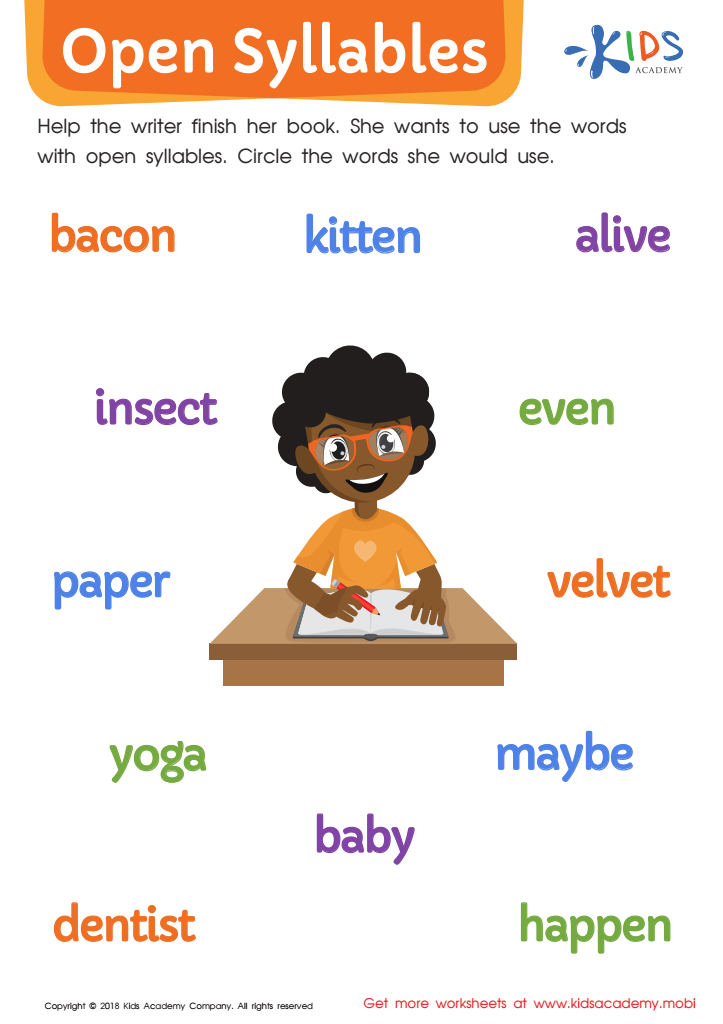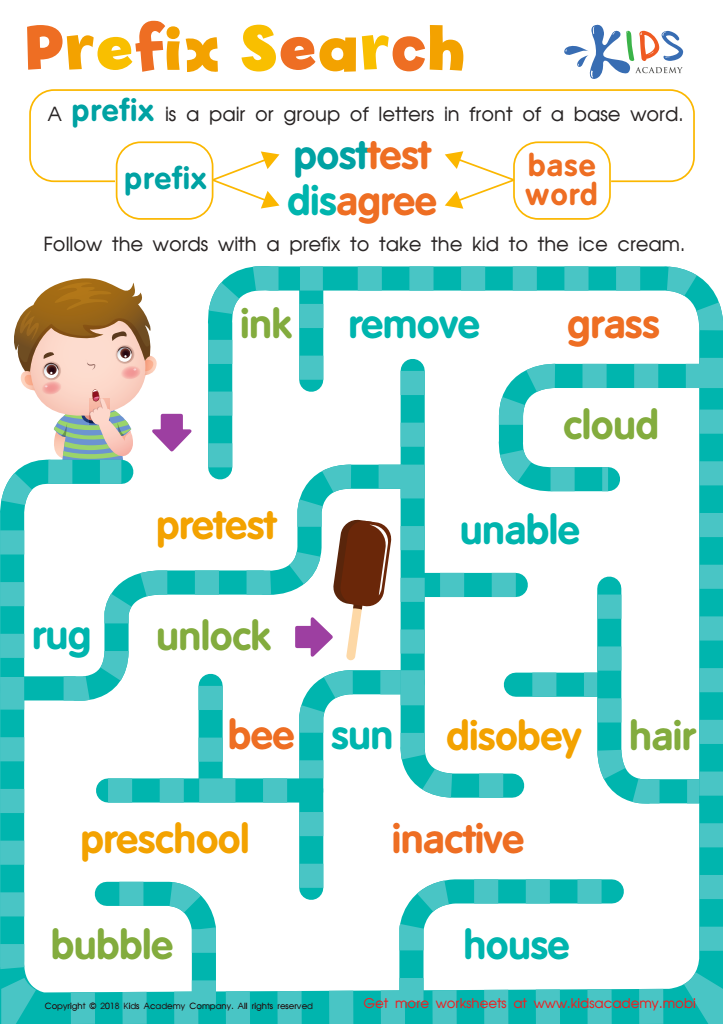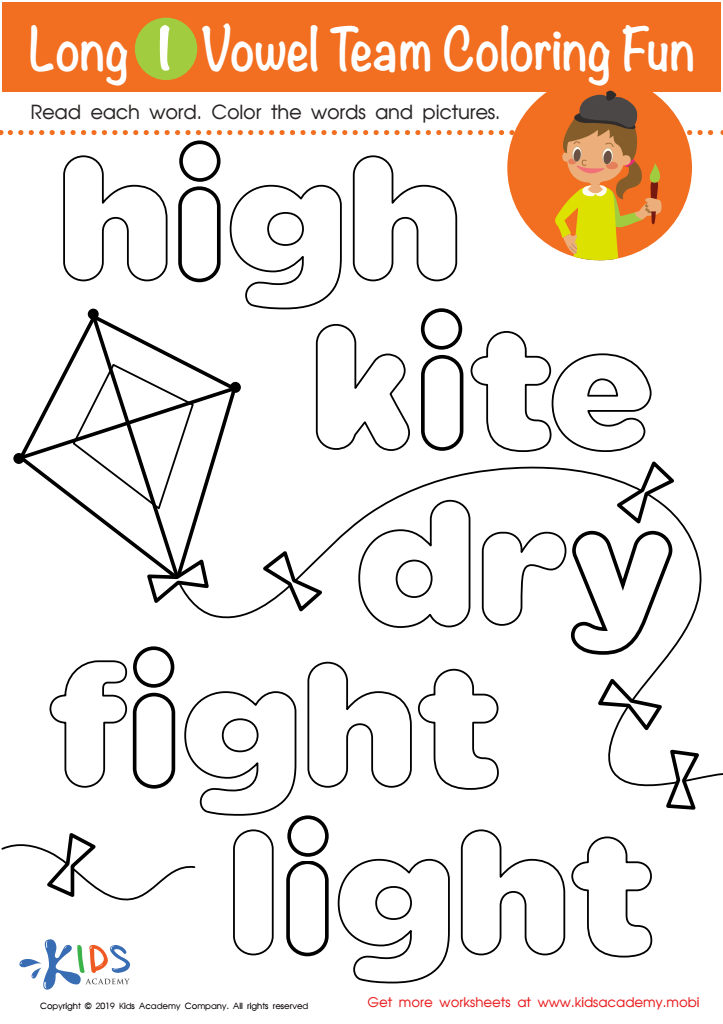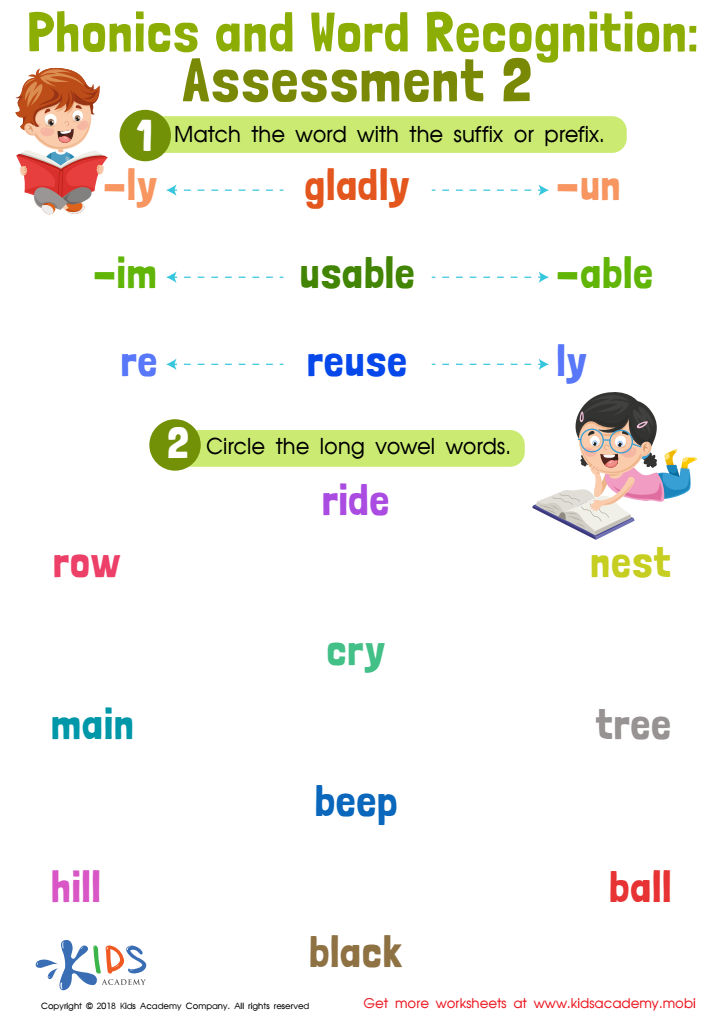Word identification Phonics Worksheets for Ages 7-9
7 filtered results
-
From - To
Discover our engaging Word Identification Phonics Worksheets designed specifically for children aged 7-9! These interactive resources enhance literacy skills by encouraging young learners to recognize and decode words confidently. Our worksheets incorporate fun activities that promote phonemic awareness, enabling kids to identify sounds and build vocabulary effectively. With colorful illustrations and age-appropriate tasks, learners remain captivated while developing crucial reading skills. Perfect for classroom use or at-home learning, these worksheets provide a structured way to support your child's educational journey. Start fostering a love for reading today with our carefully curated phonics resources, empowering your child for future success!


Open Syllables Worksheet


Phonics and Word Recognition: Assessment 1 Worksheet


Reading: Prefix Search Worksheet


Long I Vowel Team Coloring Worksheet


Phonics and Word Recognition: Assessment 1 Worksheet


Phonics and Word Recognition: Assessment 2 Worksheet


Phonics and Word Recognition: Assessment 2
Word identification and phonics are essential components of literacy for children aged 7 to 9, as they significantly influence reading development and academic success. At this age, children transition from learning to read to reading to learn; thus, strong word identification skills empower them to decode new vocabulary and improve comprehension across various subjects.
Phonics instruction teaches children the relationships between letters and sounds, enhancing their ability to recognize familiar words quickly and tackle unfamiliar ones. This foundational skill not only supports fluent reading but also boosts confidence, encouraging students to engage more actively with texts. Furthermore, proficient readers are more likely to enjoy reading, which fosters a lifelong appreciation for literature.
Parents and teachers play pivotal roles in supporting this critical stage. By integrating phonics activities and word identification strategies into daily routines, both at school and home, they can create a supportive learning environment. This collaboration ensures that children develop the skills necessary to navigate the complexities of language, overcome reading challenges, and achieve academic excellence. Ultimately, prioritizing phonics and word identification is an investment in children's educational journeys and future opportunities.
 Assign to My Students
Assign to My Students














